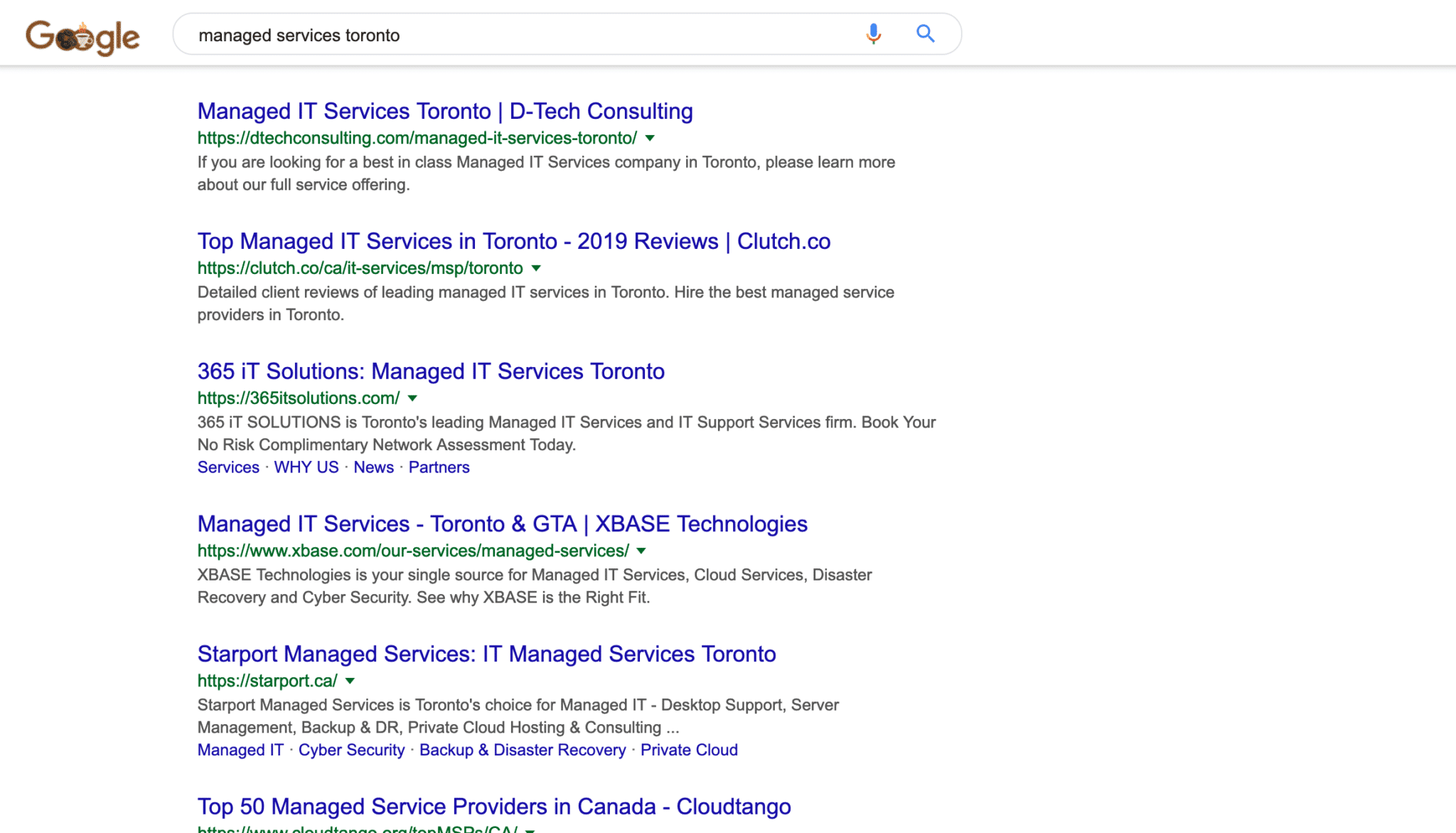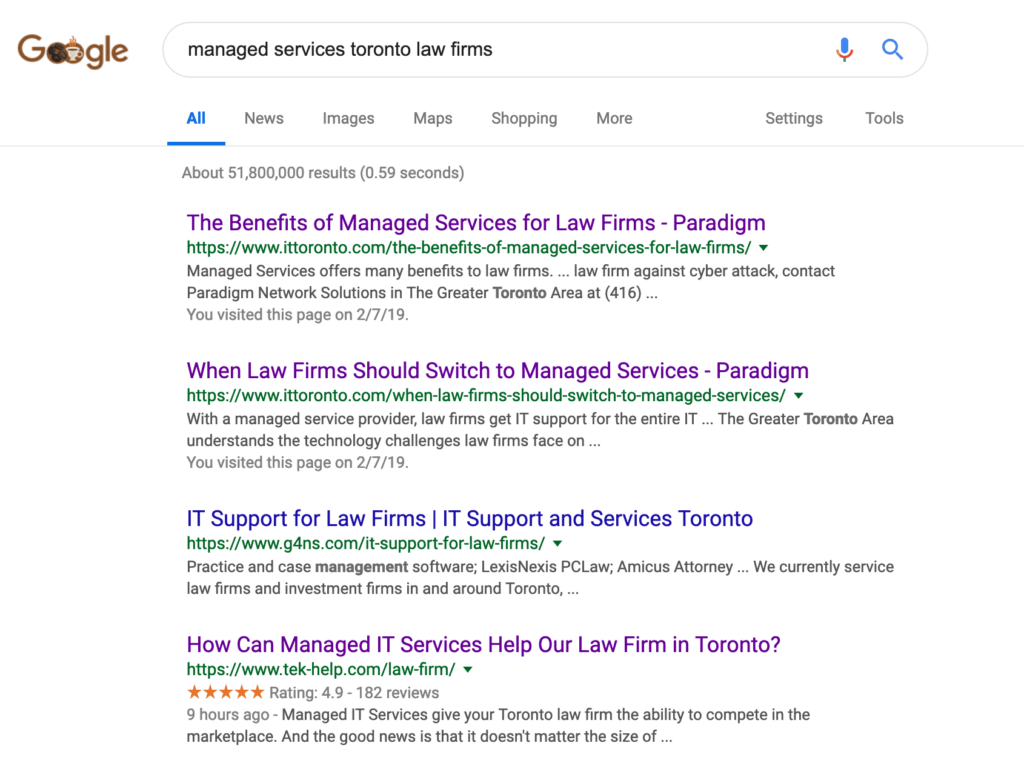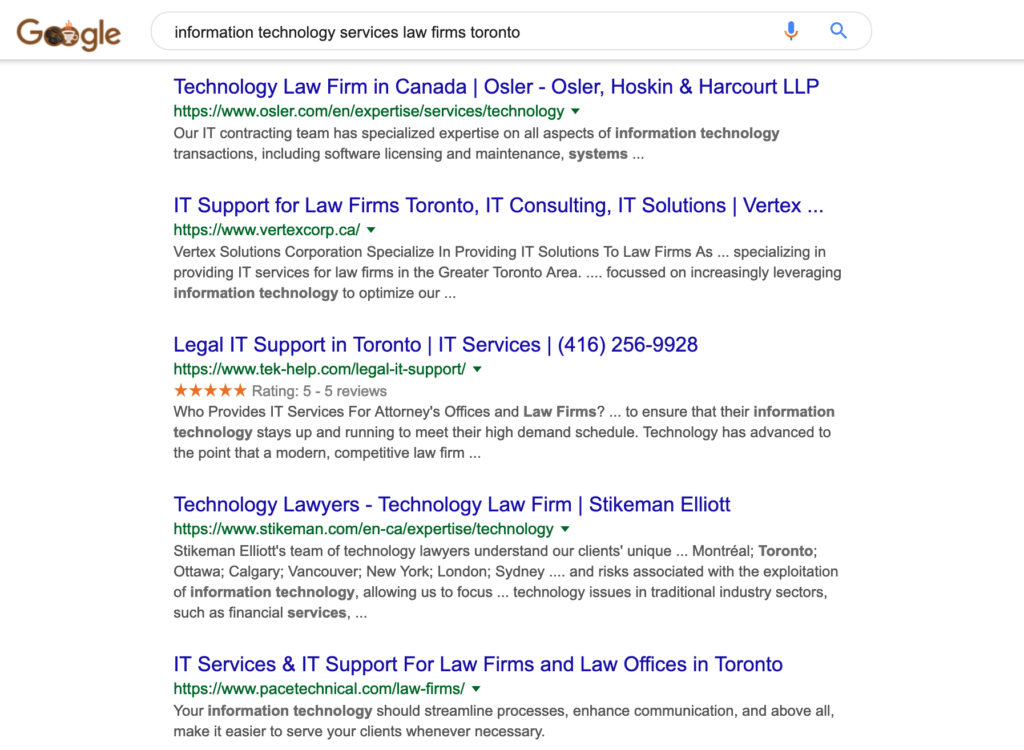
Is Your MSP Website Being Found On Google?
If not, you need a more reliable and extensive MSP SEO strategy.
Some MSPs assume that if they stuff enough keywords and backlinks into the right places throughout their website, they have taken care of their SEO. Wrong! A proper and effective SEO strategy is much more complex than that. Nonetheless, many MSPs neglect to implement a real SEO strategy. This is why finding out how to manage your website’s SEO is so important. By understanding how SEO can affect your traffic, you will already have a leg up on the competition.
Does your managed IT service already have a comprehensive SEO strategy? If so, you will want to make sure that you are using the latest techniques to increase your visibility and growth potential. How can you make sure that your SEO strategy is sound? The answer is simple: LSI Keywords.
What are LSI Keywords?

You’re probably wondering what these are and you can use them on your own MSP website. LSI stands for “Latent Semantic Indexing.” So, what does that mean? Let’s break it down.
“Semantics” refers to the meaning of words and how different words relate to one another. So, LSI keywords are words that are generally found together under a certain topic, and are therefore semantically related.
That sounds simple enough, but it is easier to conceptualize with an example. Let’s say you are publishing a blog post about “healthcare.” While writing this post, you will naturally mention certain related terms, like “insurance,” “doctor,” “patient,” “appointment,” and so on. These are all LSI keywords. They are semantically related to one another through their connection to the seed keyword (healthcare).
As another example, let’s say you are a lawyer who wants to improve your search engine rankings for the services you provide. Specifically, you want to flesh out your page dedicated to “car accident liability.” In the process of rewriting the page, words like “crash,” “injury,” “safety,” “driver,” and “compensation” appear. These words are all linked to the topic/seed keyword, and are related to one another as a result.
LSI Keywords vs. Long-Tail Keywords
Long-tail keywords have been the driving force behind SEO strategy for the last decade, but thanks to changes in Google’s algorithm, that is starting to change. In the past, you could boost your search engine rankings by simply increasing your long-tail keyword density by 10-15%. That is no longer the case. Now, LSI Keywords are just as important as long-tail keyword density. So what are the differences between LSI and long-tail keywords?

Long-tail keywords are comprised of three or more words that target a niche audience. For example, if you are writing content about gardening, you might do some keyword research and find that the phrase “gardening strategies for winter” represents an untapped market online. There are very few posts on the subject, and you think with a tailored article emphasizing this long-tail keyword, your post will appear at the top of Google search results. To capitalize on this opportunity, you might include this phrase in a heading or sprinkle it two or three times throughout your content. For long-tail keywords, you are intentionally including a certain topic to reach a particular audience.
On the other hand, LSI keywords naturally occur for a given topic. These are not intended to target a particular audience, but help signify the relationship between the topic and content. In this sense, LSI keywords are just as necessary as long-tail keywords, because they let search engines and readers know what the post is about in greater detail.
Why Do LSI Keywords Matter?
 Search engines have advanced and complex algorithms that can distinguish between different topics, levels of accuracy, and even writing quality. LSI keywords are just one more way that search engines decipher your content and determine whether or not it should appear high in search results. By analyzing how words naturally appear together under the umbrella of certain topics, search engine algorithms work to push the best and most relevant content to the front page.
Search engines have advanced and complex algorithms that can distinguish between different topics, levels of accuracy, and even writing quality. LSI keywords are just one more way that search engines decipher your content and determine whether or not it should appear high in search results. By analyzing how words naturally appear together under the umbrella of certain topics, search engine algorithms work to push the best and most relevant content to the front page.
As a result of these changes, the days of stuffing keywords haphazardly into your content are over. If your keywords are not relevant or do not fit naturally into your content, search engines will know. This is why it is so important to focus your SEO strategy on LSI keywords and analyzing the relationships between your topic, headings, and overall content.
To understand this further, look at a broad topic like “Italian food.” There are different approaches that can be taken to the topic, and these approaches will have their own unique LSI keywords to help differentiate them from other “Italian food” content.
For example, if your post has words like “recipe,” “ingredients,” and “cook,” then search engines and readers both understand that this is a post about how to make Italian food at home. However, if your post includes words like “restaurant,” “menu,” “service,” and “location,” then it is obviously more about dining at an Italian restaurant. Though the two topics are both under the umbrella of “Italian food,” they were written with different intentions and for different audiences. LSI keywords help make sense of these differences.
How Can You Identify LSI Keywords?
Even though LSI Keywords do appear naturally in writing, this does not mean that you can just write about your topic without doing some research. In order to find out which LSI Keywords should appear naturally, you need to find out which words Google associates with your topic. This can be done in a number of ways:
- Use Google to find your term and look at some of the predictions that come up. For example, if you search for “car engine,” you will see associated words like “parts,” “for sale,” “diagram,” and “cleaner.” Not all of these will be perfectly suited for your particular needs, but these predictions will give you at least one or two LSI keywords to include.
- When searching for your topic on Google, look for words in bold. Google has already done the heavy lifting for you by highlighting these LSI keywords in the search results.
- Finally, if you scroll down to the bottom of a Google search results page, you will see a list of phrases under a “searches related to [your topic].” These will provide you with a few more LSI keywords.
Once you know which LSI keywords should appear for your topic, you simply need to write your content and ensure that they appear naturally in the text.
Find out more about LSI Keywords and grade the SEO strategy of your MSP website now at https://www.ulistic.com!



